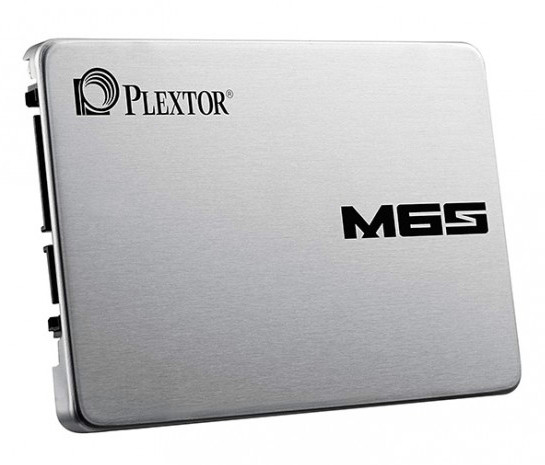Plextor Introduces M6S SSD With DEVSLP Device Sleep Mode
Plextor's new SSD is called the M6S, and comes in capacities between 128 GB and 512 GB.
Plextor has announced a new SSD -- the M6S. This SSD is meant to be a good all-around SSD which the company has targeted to mobile users wishing to upgrade from a hard drive, as it claims it is even more power efficient than its predecessor.
Regarding specifications, the SSD reads and writes at up to 520 MB/s and 440 MB/s, respectively, and can push up to 94,000 IOPS read, and 80,000 random 4K IOPS while writing.
To make the units more power efficient, Plextor has enabled the unit to use DEVSLP mode – Device Sleep. This mode allows the unit to go into sleep mode when inactive, reducing the power consumption drastically when it is not in use.
"The new M6S gives desktop and notebook users the ultimate system upgrade. Its combination of speed and efficiency makes it an ideal replacement for a hard drive. By installing an M6S rather than a traditional hard drive, Windows 7 boots in a quarter of the time, applications start quickly, and saving and loading become almost instant. Our tests even show that notebook users can gain an extra 30 minutes of battery time by using an M6S," said Product Manager, Yaping Zheng.
There was no word on pricing for the units, though Plextor did indicate that the units will become available in stores throughout Q2 2014, and capacities will range from 128 GB to 512 GB.
Get Tom's Hardware's best news and in-depth reviews, straight to your inbox.
Niels Broekhuijsen is a Contributing Writer for Tom's Hardware US. He reviews cases, water cooling and pc builds.
-
Christopher1 What exactly is this DEVSLP Mode? Other articles on other websites have said that it is 're-configuration' of SATA where a functionality that was not commonly used was redesigned for DEVSLP?Reply -
jimmysmitty Reply13024196 said:What exactly is this DEVSLP Mode? Other articles on other websites have said that it is 're-configuration' of SATA where a functionality that was not commonly used was redesigned for DEVSLP?
http://www.storageinterface.com/articles/12-sata-devslp
DEVSLP is a signal that is sent to a SATA disk drive to tell it to enter a very low power state. The SATA specification has always allowed for the drive to enter a low power state, but in the past the drive had to keep its high speed transceiver circuitry powered up in order to receive the signal to wake up again. DEVSLP removes this power hungry requirement by using a separate low speed pin.
Just allows for SSDs to go into an even lower power state so even less power used in sleep mode.

